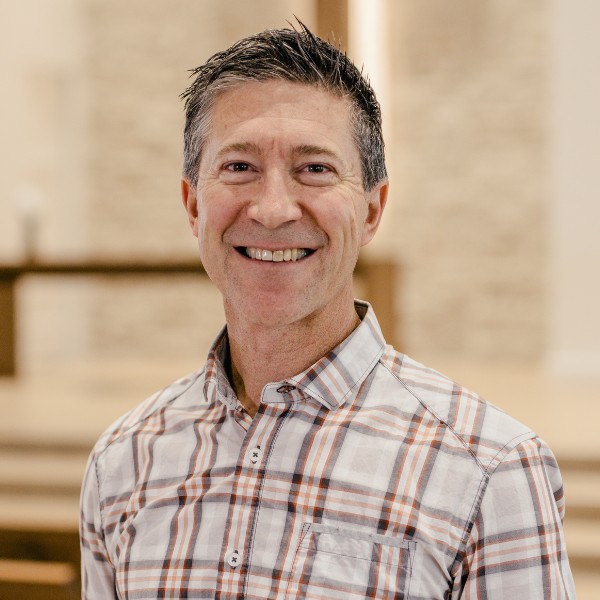Last Sunday we had a wonderful worship service with the Franklin Church congregation who graciously hosted us all summer. It was our final outdoor service, which means that this Sunday at 10a we will return to indoor worship at the middle school (details can be found here). In preparation, our elders have had multiple discussions about how to come back together indoors in a way that prioritizes the command of God to worship together each Lord’s Day, and also prioritizes safety regarding the virus.
There has been no uniform approach to these priorities among our nation’s churches. Some have opted to remain virtual for the entirety of 2020. Others have gone back to gathering for worship indoors with no restrictions whatsoever. There is at least one church in a legal battle with the governor of their state to remain open (Grace Community Church, pray for them).
The physically gathered body of Christ worshiping together — singing hymns, confessing sin, praying, praising, hearing the Word of God and celebrating the sacraments — is her most important responsibility and her most joyful act. Over the millennia, corporate, physically embodied worship has been the defining characteristic of God’s people:
- The enslaved Hebrews in Egypt were set free by God so that they could worship Him together (Exodus 5:1).
- The prophet Isaiah called the people of God to behold him together (Isaiah 40:8-9).
- Jesus gathered his people to worship in spirit and truth (John 4:20-23).
- The early church was known for their worship together where they would sing, pray, preach the Word of God and share the Lord’s Supper (Acts 2:42-47, 1 Corinthians 11:17-33,14:26).
The church is certainly more than the Sunday worship gathering, but it is not less. And this has been difficult lately! We are blessed to have technology that enables live-streaming. It allows those with concerns about the virus, those with loved ones who are particularly vulnerable in the home, and those who are physically homebound to participate. It enabled us to carry out worship online in the opening months of the pandemic, and we were blessed to reach many people who had never previously worshiped with us, a ministry that continues to this day. Praise God!
The church is certainly more than the Sunday worship gathering, but it is not less.
But live-streaming was never intended to be a 1:1 substitute for embodied worship. It is much better than nothing, but not better than the actual, physically gathered body of Christ. I experienced this while on vacation this summer. We tuned into the livestream from a few hours away. My entire extended family was there, and we did our best to actually participate in worship as opposed to merely watching. It was easy to be distracted by kids, my phone, a refill on coffee, figuring out the elements for communion, and side conversations. There were advantages – the convenience of having it right there in the home we rented, and the elimination of travel. But the efficiencies left me with a diminished experience of worship. I didn’t talk about my week with anyone or hear about theirs. I didn’t pray or laugh with anyone. My attention was divided. I couldn’t hear other voices (other than my suddenly quiet children’s) singing and repenting and praying. Attentiveness was reduced. It was far less worshipful than being together on a Sunday morning.
We are committed to continuing to live-stream and we have invested in better equipment to carry it out with greater effectiveness (pray for Brady and the livestream team as we transition on Sunday to the upgraded equipment). But for all these reasons and for the fact that we miss you, we hope you will return. If you do, our elders have laid out the following approach. For volunteers and people entering, walking around, and exiting the building, masks are the expectation and requirement. Within the worship service itself, we will encourage but not require masks. Some saints will be hindered in their worship if they wear a mask and will remove it to sing, pray and hear the message. Other saints will keep the mask on out of a conviction that this is the right thing to do. If you feel uncomfortable or like it is just plain wrong to wear a mask anytime or anywhere, we ask that you bear with us and wear it as you are making your way through the building. In the worship service itself, you are free to follow your own conscience. On the other hand, if you feel convicted that wearing a mask is the right thing to do in the worship service, by all means, wear it! And if you feel uncomfortable being around anyone else who is NOT wearing a mask, our overflow space will be designated for mask-wearers only.
Our decision to make this policy explicit is a result of what we find in our Reformed Presbyterian tradition. There are three important principles that have guided our discussion.
1.We should not hinder anyone as they worship God. This is described in the Book of Order:
“worship should be conducted in such a way that persons are not hindered in their worship . . . “All who come to worship should actively participate. The worship should be so designed that there is common participation when all share in the various elements of praise to God. Participation by various members of the particular congregation is encouraged to demonstrate that worship is a privilege of all and not relegated to a select few” (Book of Order, 2-4).
Many will undoubtedly feel just fine worshiping in a mask. Others would feel hindered, and we want to avoid forcing people to worship in a manner that is stifling and distracting.
2. We should not bind anyone’s conscience. Christian leaders (pastors or elders) do not have the authority to bind the conscience of individuals. In other words, if there is a conviction someone feels about an issue that is not clearly addressed in Scripture (such as mask-wearing), no one has the authority to tell them how they must act.
Our Westminster Confession of Faith describes this in chapter 20, paragraph 2 of “Christian Freedom and Freedom of Conscience:
God alone is Lord of the conscience and has left it free from the doctrines and commandments of men which are in any way contrary to or different from his word in matters of faith or worship. And so, believing any such teachings or obeying any such commandments of men for conscience’s sake actually betrays true freedom of conscience. Requiring implicit or absolute, blind obedience also destroys freedom of conscience as well as the free use of reason.
Many will feel that wearing a mask at all times while indoors is the most prudent course of action, or the one that honors governing authorities. Others may feel that wearing a mask is precisely the wrong thing to do (particularly when worshiping) because it is a hindrance, or because the government should not dictate how we cover our faces when we worship, or because the masking order represents an unconstitutional overreach by governmental authorities. Either way, we ought to bear with one another, and so uphold our Christian freedom.
3. We ought to in all things do what is most loving. All of us know the Great Commandment – Love God, and love our neighbors (Matthew 22). Many will feel that Jesus would wear a mask in this situation because it takes into account those who are vulnerable to the virus. Others will feel that it is most loving not to wear a mask in order to demonstrate boldness and courage, or to prioritize the first part of the Great Commandment over the second.
We have decided that within the worship service itself, it is prudent to leave it up to the individual. We will keep 6 feet of distance between each family unit, and we will expect masks to be worn throughout the facility as we enter, exit and move about. During the worship service itself, however, we do not believe we have the authority to require mask-wearing of our people, particularly those who for Biblical reasons do not feel it is right.
I hope to see you in person on Sunday! If not, I hope you see us on the livestream.
Pastor David

